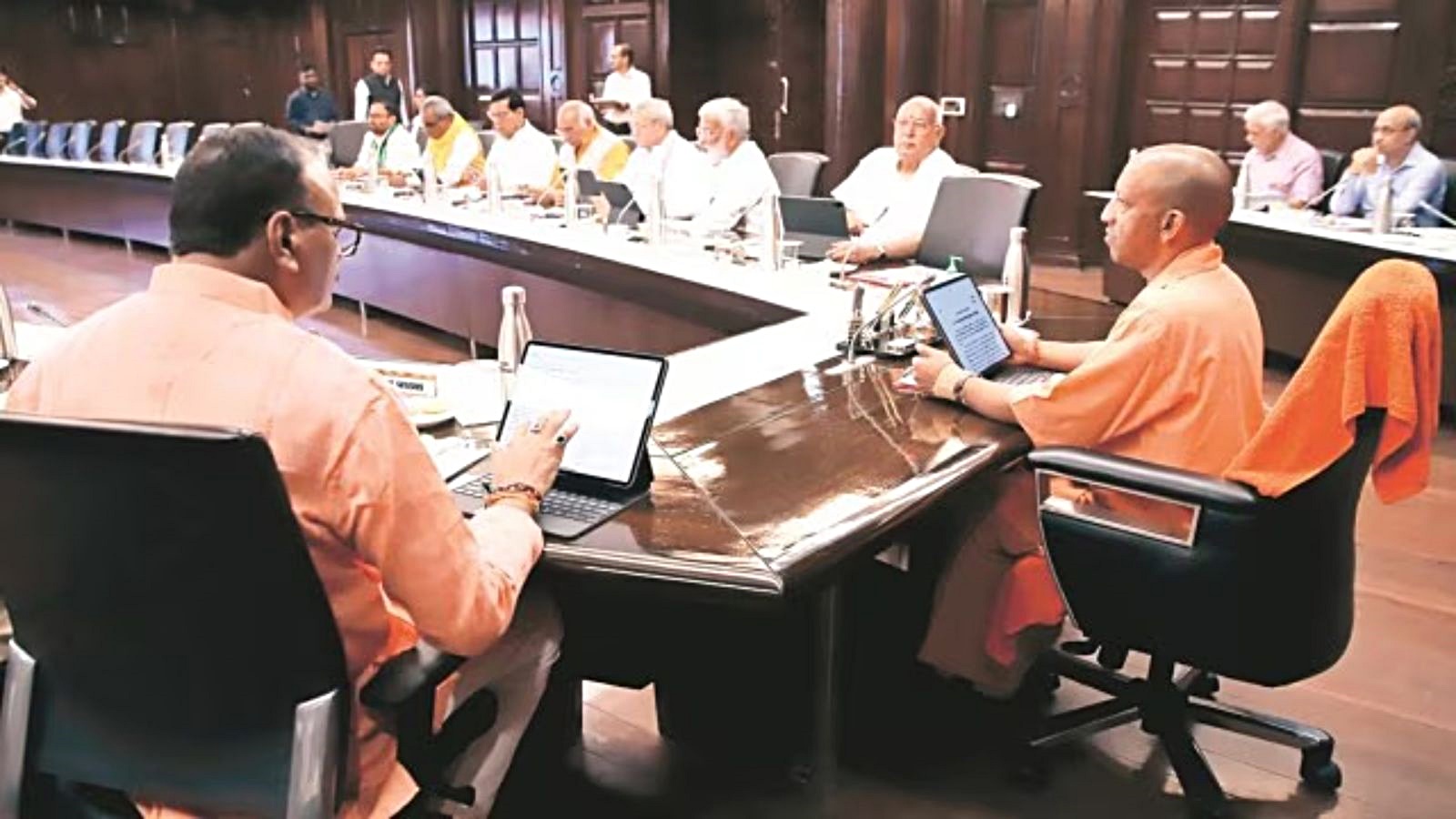There will be no lasting peace between or within nations without peace among and within religious communities. Religious conversion has been a fractious issue in Independent India. Religion has arguably also made some aspects of the Universal Civil Code (UCC) and the Abrogation of Article 370 more contentious.
The UCC’s goal has been partly achieved with the enactment of a such a code in Uttarakhand and the Presidential assent to it, even though some of its provisions are inconsistent with central laws applicable to Hindus. Religious conversion, thus, is the only issue that needs to be settled, especially since the right wing in the country has consistently talked of the “threat” of Hindus converting to Christianity and Islam.
Conversion is a social problem. Can a law solve it? Why are no statistics presented to shine a light on the number of prosecutions under anti-conversion laws? How many of these cases have resulted in convictions? The first anti-conversion laws were passed as early as 1968 in Madhya Pradesh and Odisha by the Samyukta Vidhayak Dal and Swatantra Party governments. However, their efficacy in curbing conversion remains a matter of debate. In any case, why should the state’s permission be required to change religion – a purely private matter?
Conversations on conversion rarely take the form of an informed debate, substantiated by data. Even a liberal like Atal Bihari Vajpayee had called for a national debate on conversions, but no such debate was ever held. In recent years, some BJP-ruled states have either passed or changed laws that deal with religious conversion. Changes to existing laws are often justified on the grounds that they weren’t adequate deterrents. For instance, while introducing UP’s Prohibition of Unlawful Conversion (Amendment) Bill, 2024, the state’s Parliamentary Affairs Minister, Suresh Khanna said, “Kanoon ko aur kattar banaya gaya hai” (the law has been made more stringent).
Passed on July 30, the piece of legislation is of a piece with the trite narrative of Hindus losing their numerical majority. The Bill has increased the punishment from 10 years imprisonment to life imprisonment for fraudulent or forced conversion. It’s a different story that even the death penalty hasn’t deterred crime in the country.
Abjuring the classical principle of defining penal acts, the UP Bill defines the offence in a wide and extremely loosely worded manner: “Threatening, attacking, marrying, promising to marry, conspiring, or trafficking a woman, minor, or anyone with the intent to convert as a serious crime punishable with imprisonment up to 20 years or life imprisonment (the remainder of convict’s life).” In other words, courts cannot remit life imprisonment – like in the Bilkis Bano case, which the Supreme Court overturned – in “forced conversion” cases.
One is at loss to understand the wording of the Bill: Why couldn’t its drafters think the term “anyone” will ipso facto encompass minors and women?
The new stringent law could create tensions amongst communities because, under its Section 4, any person can register an FIR in conversion cases. Earlier only the person’s relatives could have filed a FIR. In most cases, such FIRs are not likely to lead to convictions as has been the experience with almost all such laws.
Historically, most conversions to Islam and Christianity in India have taken place from among the ranks of the economically poorest and socially most defenceless Hindus. The Hindu majority saw converts as people who had betrayed the nation by dividing the community. It saw conversion as an act of revolt against the higher Hindu castes, which claimed to have resisted what many Hindus saw as a religio-cultural invasion by foreign conquerors. Therefore, it is no coincidence that religious conversions were condemned by many Hindu organisations, several of whom also advocated re-conversion to Hinduism (ghar wapsi). Therefore, all anti-conversion laws exempt reconversion though re-conversion too is nothing but conversion.
In the Constituent Assembly, leaders with a rightist bent had suggested a ban on conversions. But the proposal was rejected. Thus, the Constitution allows people to “profess, practice and propagate” religion. Propagation means to transmit or spread one’s religion by the exposition of its tenets. Where propagation ends and conversion begins is difficult to say. But the law as it stands today is quite clear that “propagation” does not include “conversion”. Those favouring a national anti-conversion law often take the support of the Supreme Court judgment in Rev. Stanislaus v. State of Madhya Pradesh (1977), in which the Court held that the MP Freedom of Religion Act, 1968 and Orissa Freedom of Religion Act, 1968 are valid and not ultra-vires to the Constitution even though the Acts were hindrances in the propagation of one’s religion. It was held that the “right to propagate” does not mean the “right to convert”.
Soli Sorabjee, India’s attorney general during the Atal Bihari Vajpayee-led NDA government, had advocated the review of Rev Stanislaus.
The right to propagate one’s idea is inherent in the concept of speech and expression. In his magisterial work, Constitutional Law of India, H M Seervai, one of India’s best legal minds, described the decision as “productive of great public mischief”.
That said, forcible and fraudulent conversion is indeed bad and not approved by any religion. By the same logic then, shouldn’t the denial of benefits of affirmative action to lower caste converts be seen as an “inducement” and “allurement” to remain within the Hindu fold? A petition on this issue has been pending in the SC for decades.
It is necessary to remind ourselves about the India Mahatma Gandhi dreamt of. He said, “I do not expect the India of my dream to develop one religion, that is, to be wholly Hindu or wholly Christian or wholly Mussalman, but I want it to be wholly tolerant, with its religions working side by side.”
The author is the Vice-Chancellor of Chanakya National Law University, Patna. The views are personal



